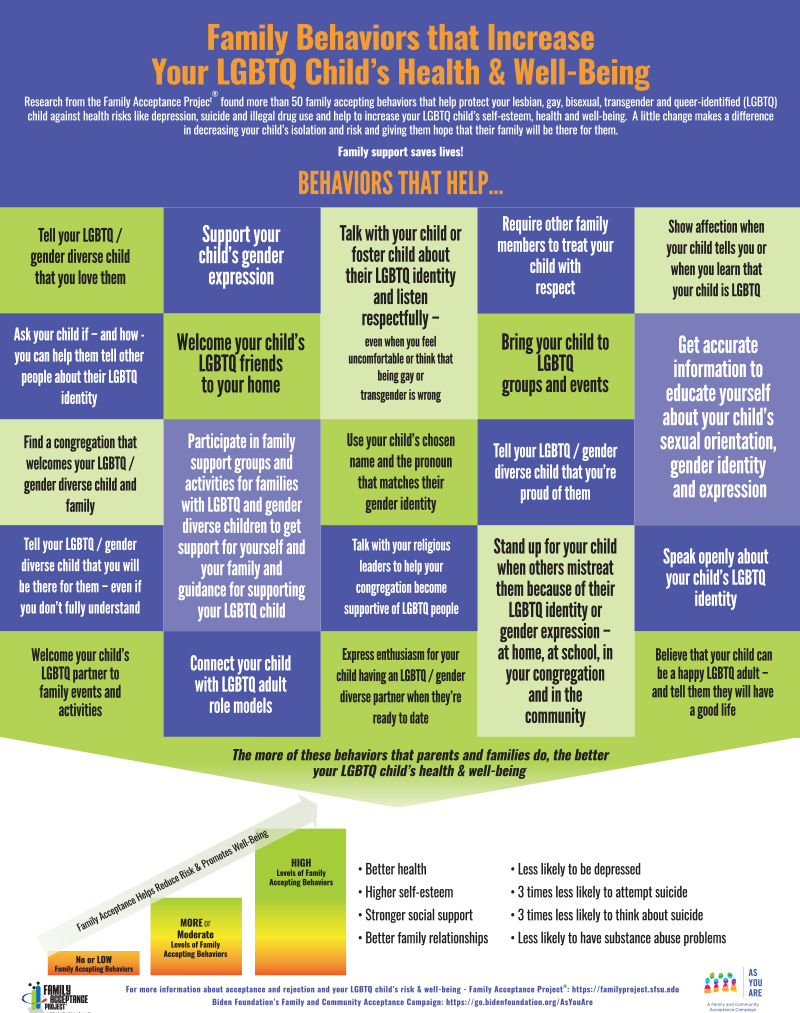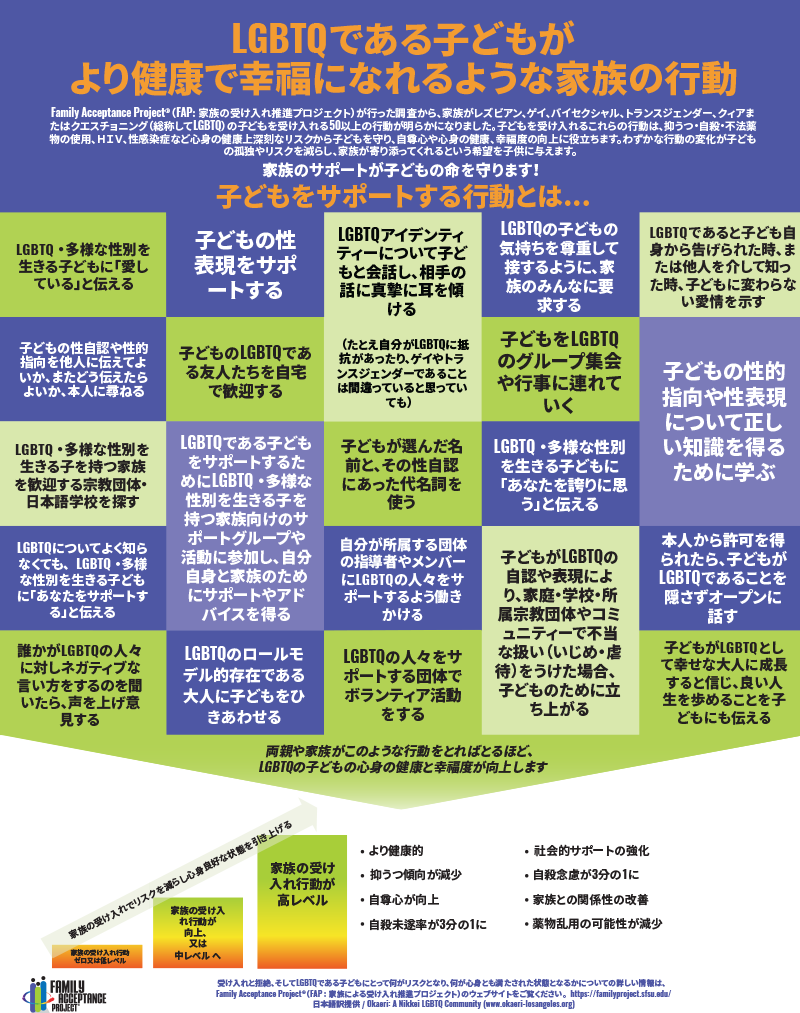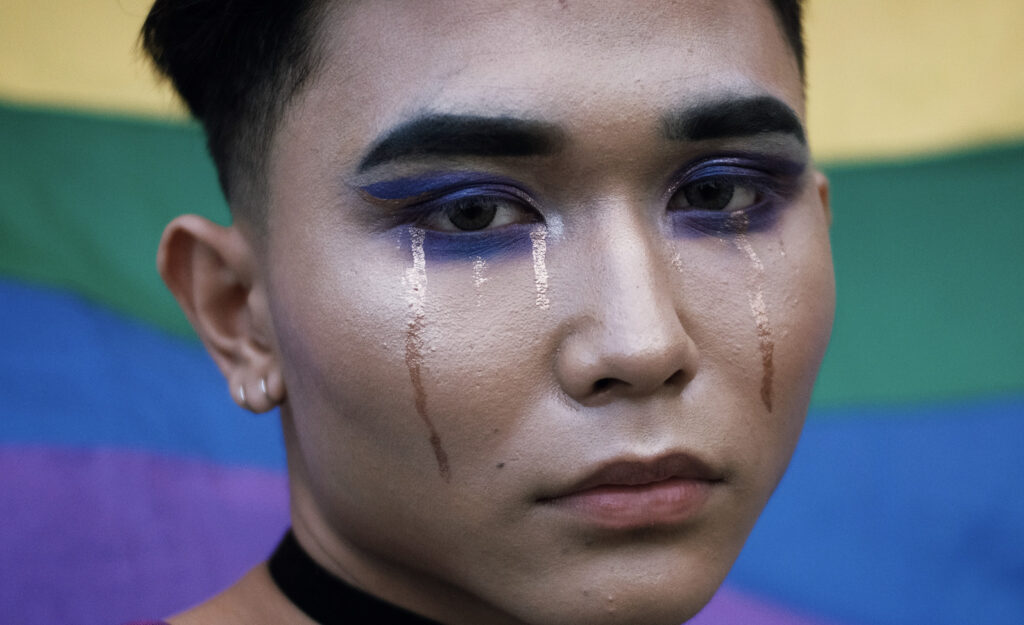Asian language posters strive for acceptance of LGBTQ kids
Family Acceptance Project has released eight new Asian language posters to help families to support their LGBTQ children to reduce risk and increase wellbeing during the Covid-19 pandemic.
In conjunction with Asian American and Pacific Islander (AAPI) Heritage Month in May last year, the Family Acceptance Project at San Francisco State University released a series of 8 new Asian language posters to share critical information from FAP’s peer-reviewed studies and family support work to help prevent suicide and other serious health risks and to promote well-being for AAPI LGBTQ children and youth. This includes new language versions of FAP’s Poster Guidance and Healthy Futures posters on the impact of family accepting and rejecting behaviors on risk and well-being for LGBTQ young people in Chinese (traditional and simplified), Hindi, Korean, Japanese, Punjabi, Tagalog and Vietnamese. The poster series is currently available in English and Spanish. Other versions in Arabic and African languages and for American Indian families are forthcoming.

High levels of risk for LGBTQ adolescents for suicide, substance abuse, depression and victimization call for evidence-based approaches that increase support and connectedness, starting with families. Family support plays a major role in helping to buffer racism and rejection, urgently needed now as violence against people of Asian descent has rapidly increased. FAP’s research has identified more than 100 specific rejecting and accepting behaviors that increase risk for suicide, depression, drug use, HIV and other health risks and promote well-being. FAP’s posters give parents and caregivers the language to help reduce their LGBTQ children’s risk and strengthen their families.
During the Covid-19 pandemic, FAP partnered with Dr. Lance Chen-Hayes, a national AAPI advocate for LGBTQ people and their families who is affiliated with API Rainbow Parents of PFLAG NYC. Dr. Chen-Hayes, collaborating with other community leaders, coordinated a volunteer group of 40 Asian native language speakers to translate FAP’s Healthy Futures poster series into major Asian languages to distribute across the U.S. and in other countries. This includes AAPI parents with LGBTQ children, allies and LGBTQ adults who volunteered to ensure that the posters are relevant for family members and others in their first languages. This is especially important for AAPI communities since nearly three-quarters of Asian adults in the U.S. were born in other countries.




Marsha Aizumi, co-founder of PFLAG’s first API chapter, said: “These posters are a tremendous resource for API families who don’t often have the words and actions to support their LGBTQ children in their native language. If I had resources like these when my transgender child first came out over ten years ago, I would have struggled less and supported more intentionally. Fortunately, we gave our son the message that he would always have a place to belong, which we learned from FAP’s research. This was critical for Aiden to believe he is worthy of being loved and finding the happiness and success he lives today.”
Said Dr. Caitlin Ryan, the Family Acceptance Project’s founder and Director: “Our work to increase family acceptance for LGBTQ youth is grounded in the family’s culture and values. We need to educate and guide parents and families on how to support LGBTQ young people using their first language that expresses core values. Expanding the language base for FAP’s multilingual family educational materials will help us reach across cultures to strengthen family connections, reduce risk and build healthy futures for LGBTQ children and youth. This is urgently needed during the pandemic when LGBTQ youth have been separated from peers and other key sources of support.”
FAP’s Healthy Futures poster series and poster guidance are available to download for free in 4 sizes in camera-ready versions in 10 languages from FAP’s website.
For more information and to download copies of the posters, visit https://familyproject.sfsu.edu/






